
Find Help
More Items From Ergsy search
-

Hip replacement
Relevance: 100%
-

What is a hip replacement?
Relevance: 96%
-

Total Hip Replacement
Relevance: 94%
-

Total hip replacement
Relevance: 94%
-

Do I need a Hip Replacement?
Relevance: 94%
-

Total hip replacement at Northumbria Healthcare
Relevance: 85%
-

Can both hips be replaced at the same time?
Relevance: 84%
-

What is minimally invasive hip replacement surgery?
Relevance: 84%
-

What is the recovery time for a hip replacement?
Relevance: 83%
-
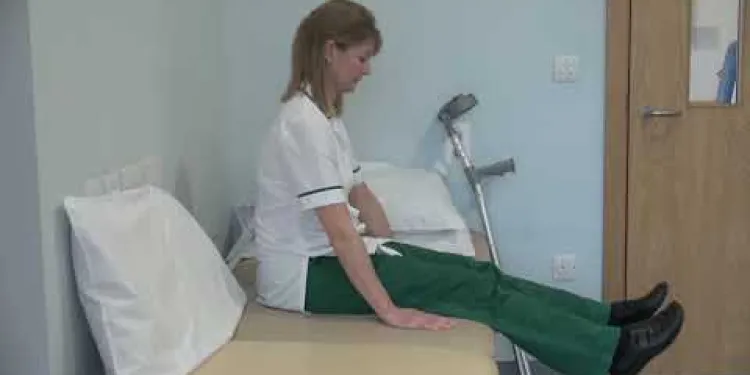
Hip replacement - getting into bed
Relevance: 83%
-

What are the risks associated with hip replacement surgery?
Relevance: 82%
-

How long does a hip replacement surgery take?
Relevance: 80%
-

Will I need physical therapy after a hip replacement?
Relevance: 80%
-

How much does hip replacement surgery cost in the UK?
Relevance: 79%
-

How do I prepare for hip replacement surgery?
Relevance: 77%
-

What type of anaesthesia is used during hip replacement surgery?
Relevance: 76%
-

How long does it take to recover from a hip replacement operation?
Relevance: 72%
-
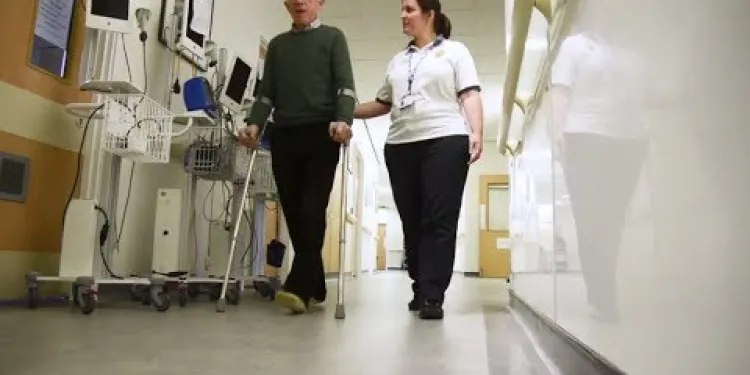
Having a hip replacement - Part Two: Recovery
Relevance: 70%
-

Osteoarthritis of the Hip
Relevance: 67%
-

Same day discharge for NHS Golden Jubilee’s hip replacement patients
Relevance: 66%
-

Your anaesthetic choices for your planned hip or knee replacement surgery at the RUH.
Relevance: 64%
-

A journey to hip surgery
Relevance: 63%
-

Osteoarthritis of the Hip
Relevance: 62%
-
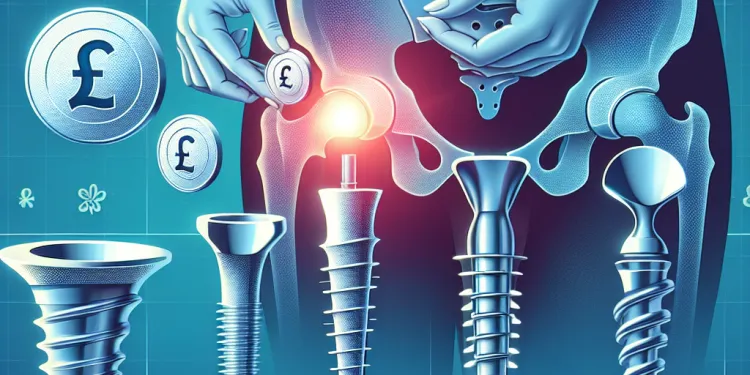
Are there different types of hip implants?
Relevance: 62%
-

How long do hip replacement implants last?
Relevance: 61%
-
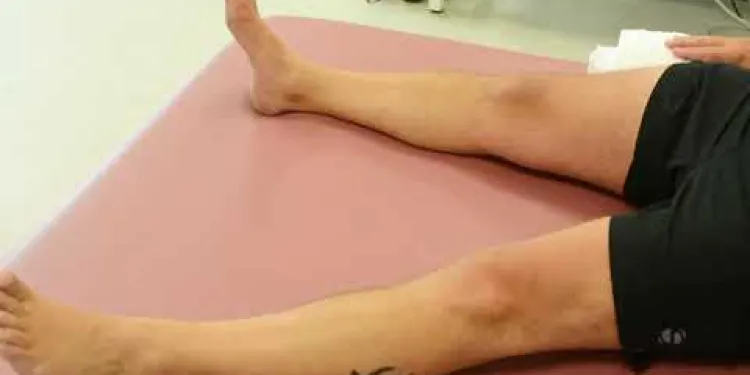
Joint School - Hip Exercises
Relevance: 57%
-

Will I be able to return to normal activities after hip replacement?
Relevance: 56%
-

Enhanced Recovery - Hip
Relevance: 48%
-
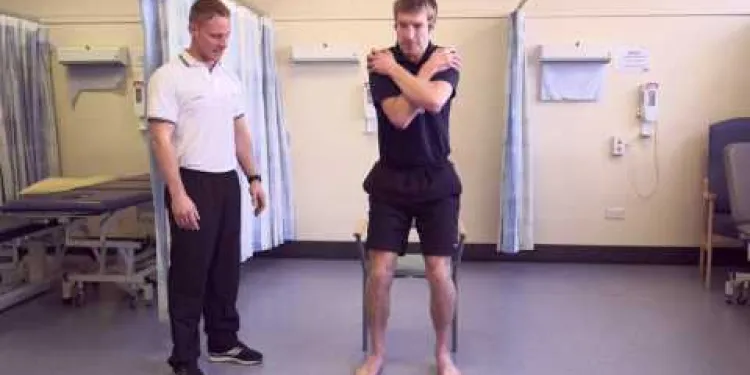
Exercises to help your lateral hip pain
Relevance: 48%
-

What can I expect during the first few weeks after hip replacement surgery?
Relevance: 46%
-
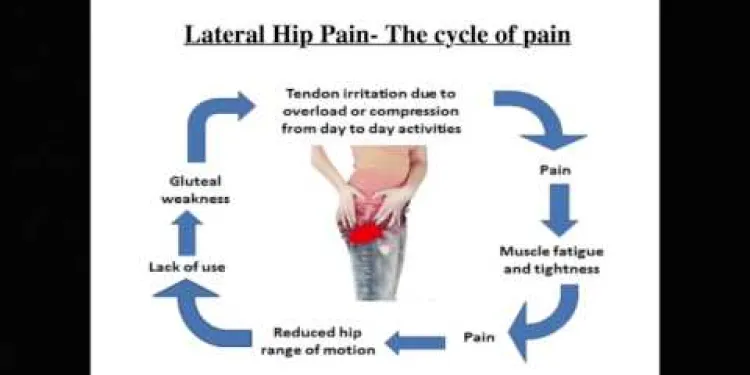
Advice - How to manage your lateral hip pain
Relevance: 46%
-

Who is a candidate for a hip replacement?
Relevance: 46%
-

Knee replacement
Relevance: 45%
-

Total Knee Replacement
Relevance: 41%
-

Total knee replacement
Relevance: 41%
-

Is hormone replacement therapy safe for menopause masking?
Relevance: 32%
-

Would a wealth tax replace other taxes in the UK?
Relevance: 32%
-

Can home colorectal cancer tests replace a colonoscopy?
Relevance: 29%
-

Will the digital driving license replace the physical card?
Relevance: 29%
-

Can hormone replacement therapy (HRT) impact dementia risk?
Relevance: 28%
Introduction to Hip Replacement
A hip replacement, also known as hip arthroplasty, is a surgical procedure designed to replace a damaged or worn-out hip joint with an artificial one, often made from metal, plastic, or ceramic components. This surgery is primarily recommended to relieve pain and improve function in individuals suffering from severe arthritis, fractures, or other hip-related ailments. It is a common procedure in the UK, particularly among older patients, and can significantly enhance quality of life by restoring mobility and reducing discomfort.
Reasons for Hip Replacement
One of the main reasons for undergoing hip replacement surgery is the presence of osteoarthritis, a condition that causes the cartilage in the hip joint to wear away, leading to pain and stiffness. Other conditions that may necessitate hip replacement include rheumatoid arthritis, avascular necrosis (a condition where blood supply to the bone is restricted), and traumatic injuries, such as fractures. Patients who experience severe, chronic pain that hampers their ability to perform everyday activities are often advised to consider this procedure.
Types of Hip Replacement
There are several types of hip replacements available, tailored to fit the patient's specific needs. The most common types include total hip replacement, partial hip replacement, and hip resurfacing. A total hip replacement involves replacing both the acetabulum (the hip socket) and the femoral head (the ball of the hip joint). Partial hip replacement, on the other hand, usually involves replacing only the femoral head. Hip resurfacing is a less invasive option where the femoral head is capped with a smooth metal covering, preserving more of the patient's natural bone.
The Procedure
During hip replacement surgery, the patient is placed under general or regional anaesthesia. The surgeon makes an incision over the hip area to access the joint, removes the damaged parts, and replaces them with the prosthetic components. The operation typically lasts between one to two hours, followed by a recovery period in the hospital. Most patients can expect to stay in the hospital for a few days post-surgery to monitor recovery and begin physical therapy.
Recovery and Rehabilitation
Recovery from hip replacement surgery involves a structured rehabilitation process, which is crucial for regaining strength and mobility. Patients are usually encouraged to begin walking with the aid of crutches or a walker shortly after surgery. Physiotherapy is an integral part of the recovery, focusing on exercises that strengthen the hip muscles and improve joint function. Most individuals can resume normal activities within six weeks to three months, but adherence to rehabilitation guidelines is essential for a successful outcome.
Conclusion
Hip replacement surgery can be a life-changing procedure for individuals suffering from severe hip pain and immobility. By alleviating discomfort and increasing mobility, it enables patients to return to their daily activities and improve their overall quality of life. Consulting with healthcare professionals to understand the most suitable type of hip replacement and postoperative care is important for achieving the best possible results.
What is a Hip Replacement?
A hip replacement is an operation to replace a hurt hip joint with a new one. The new joint is often made from metal, plastic, or ceramic parts. This surgery helps people who have a lot of hip pain or trouble moving. It is common in the UK, especially for older people. It can help people feel better and move more easily.
Why Do People Need a Hip Replacement?
People often need a hip replacement because of something called osteoarthritis. This happens when the cushion in the hip joint wears away, causing pain and stiffness. Other reasons for this surgery can be rheumatoid arthritis, a problem where blood does not reach the hip bone, or injuries like a break in the bone. When pain makes it hard for someone to do daily activities, doctors might suggest a hip replacement.
Different Types of Hip Replacement
There are different ways to do hip replacement surgery, depending on what the person needs. The main types are total hip replacement, partial hip replacement, and hip resurfacing. In a total hip replacement, both the hip socket and the ball of the hip joint are replaced. A partial hip replacement usually replaces only the ball of the hip joint. Hip resurfacing is a choice where the ball is covered with a metal cap, saving more of the person's bone.
How is the Surgery Done?
In hip replacement surgery, doctors use medicines to make you sleep or numb the area so you don't feel pain. The doctor cuts open the hip area to take out the damaged parts and put in the new pieces. The surgery usually takes one to two hours. After this, the person stays in the hospital for a few days to start getting better and to start physical therapy.
Getting Better After Surgery
After the surgery, getting better involves special step-by-step exercises. Patients will start walking with crutches or a walker soon after the surgery. Physical therapy is very important because it helps make the hip stronger and helps it move better. Most people can go back to normal activities between six weeks and three months, but it's important to follow the exercises to get the best results.
In Summary
Hip replacement surgery can be a big help for people with strong hip pain and movement problems. It can lessen pain and help people move around more easily, letting them enjoy daily activities again. Talking to doctors to find the best kind of hip replacement and care after surgery is important to get the best results.
Frequently Asked Questions
What is a hip replacement?
A hip replacement is a surgical procedure where a damaged hip joint is replaced with an artificial one, often due to arthritis or injury.
Who needs a hip replacement?
Hip replacements are often recommended for patients with severe hip pain and stiffness caused by arthritis, fractures, or other hip joint conditions that do not respond to conservative treatments.
What are the types of hip replacement surgeries?
The main types of hip replacement surgeries are total hip replacement, partial hip replacement, and hip resurfacing.
How long does a hip replacement surgery take?
A hip replacement surgery typically takes between 1 to 2 hours.
What materials are used in a hip replacement?
Hip replacements are typically made from metal, ceramic, and plastic components designed to mimic the function of a natural hip joint.
How long is the recovery period after hip replacement surgery?
Recovery from hip replacement surgery can take several weeks to months, with most patients resuming normal activities within 3 to 6 months.
What are the risks of hip replacement surgery?
Risks include infection, blood clots, hip dislocation, differences in leg length, and implant loosening over time.
How long do hip replacements last?
Modern hip replacements can last 15 to 20 years, and sometimes even longer, depending on the patient's activity level and other factors.
Can both hips be replaced at the same time?
Yes, both hips can be replaced during a single surgical procedure, a practice known as bilateral hip replacement, although it may be riskier and requires thorough evaluation.
What activities can I do after hip replacement surgery?
After recovery, many patients can return to low-impact activities such as walking, swimming, biking, and golfing, but high-impact activities may be discouraged.
Will I need physical therapy after hip replacement?
Yes, physical therapy is an important part of recovery to help regain strength and mobility and to learn how to move safely with the new joint.
Can I drive after having a hip replacement?
You can usually resume driving 4 to 6 weeks after surgery, once you regain adequate mobility and strength and are off pain medications.
Is hip replacement surgery covered by insurance?
Most insurance plans, including Medicare, typically cover hip replacement surgery if deemed medically necessary.
Do hip replacements set off metal detectors?
Hip replacements may set off metal detectors, depending on the material used, so it can be helpful to carry a card from your surgeon.
How should I prepare my home for recovery after hip replacement?
Arrange for equipment such as raised toilet seats, obtain help for daily activities, and rearrange your living space to prevent falls and ensure easy access.
What dietary changes are needed after hip replacement surgery?
Maintaining a balanced diet with adequate protein and calcium can aid recovery, but specific dietary changes are not typically required unless advised by your doctor.
Will I have to lose weight before a hip replacement?
If you are overweight, your doctor might recommend losing weight to reduce surgical risks and improve recovery outcomes.
Can hip replacements fail?
Yes, hip replacements can fail due to infection, wear and tear, or loosening of the components over time, necessitating revision surgery.
What can I expect during the hospital stay after hip replacement?
You will stay in the hospital for 1 to 3 days, during which you will start physical therapy and be monitored for any complications.
How do I choose a surgeon for hip replacement?
Look for a board-certified orthopedic surgeon with experience in hip replacements, and consider patient reviews and hospital affiliations.
What is a hip replacement?
A hip replacement is when a doctor puts in a new hip joint. They take out the old, hurt one. This can help you move better and stop the pain.
If you find words hard, you can ask someone to read with you. You can use pictures or videos to help understand.
A hip replacement is an operation. In this operation, a doctor takes out the bad hip joint and puts in a new fake one. This can happen if the hip is hurt or has arthritis.
Who needs a new hip?
Some people might need a new hip joint. This is when their hip joint is not working well. They might feel a lot of pain in their hip. Doctors can give them a new hip to help. If you need help reading, ask someone to read with you. You can also use reading apps or audio books to help understand better.Doctors might say you need a new hip if your hip hurts a lot and feels very stiff. This can happen if you have arthritis, a broken bone, or other problems with your hip. Sometimes, doing regular treatments doesn't help much.
If you find reading hard, try to:
- Use a ruler or finger to follow the text.
- Read out loud to yourself.
- Ask someone to read with you.
What kinds of hip replacement surgeries are there?
There are different surgeries to fix hips. Here are the main kinds:
- Total Hip Replacement: This is when the whole hip is replaced.
- Partial Hip Replacement: This is when only part of the hip is replaced.
- Hip Resurfacing: This is when the surface of the hip joint is fixed.
If you find reading hard, try reading with a helper or use an app to read out loud. Drawing pictures of the words can also help you understand better.
There are three main kinds of hip surgeries. They are:
1. Total Hip Replacement
2. Partial Hip Replacement
3. Hip Resurfacing
These surgeries help fix hip problems. Doctors do this to make it easier for people to move without pain.
How long is a hip replacement surgery?
A hip replacement surgery takes about 1 to 2 hours.
Here are some tips to help understand:
- Ask someone to explain the surgery in simple words.
- Look at pictures or watch a video about hip replacement.
- Write down any questions you have to ask the doctor.
A hip replacement surgery usually takes 1 to 2 hours.
What are hip replacements made of?
Hip replacements are made from different materials. These materials help make the new hip strong and last a long time.
- Metal: Some parts are made of metal like titanium or steel. Metal helps the hip stay strong.
- Ceramic: Some parts are made of ceramic. This material is smooth and helps parts move easily.
- Plastic: Some parts are made of special plastic. Plastic makes the hip soft and helps it move smoothly.
Pictures or videos can help you understand better. Ask an adult or a doctor if you need more help.
A hip replacement is made from metal, ceramic, and plastic parts. These work like a real hip joint.
How long does it take to get better after a new hip surgery?
It takes time to feel better after you get a new hip. It can take a few weeks or more.
Ask your doctor for tips on how to heal. They can help.
Use crutches or a walker. They can help you move around safely.
Take breaks and rest when you need to. This helps your body heal.
Getting better after a new hip can take time. Most people feel well again and can do their normal things in 3 to 6 months.
What could go wrong with hip replacement surgery?
Getting a new hip can help, but sometimes things can go wrong. Here are some things to know:
- Pain: You might feel pain after the surgery.
- Infection: Germs can get into the wound and make it hurt.
- Blood Clots: Some people get clots in their legs after surgery. This is like a traffic jam in your blood.
- New Hip Doesn't Work Right: Sometimes the new hip doesn't fit or move like it should.
- Nerve Damage: The surgery might hurt some nerves, which could make your leg feel funny.
Helpful Tools: If you are going to have this surgery, talk to your doctor. You can ask questions if you're worried. You might find it helpful to use pictures or write notes.
There are some things that can go wrong:
- You might get an infection, which means germs make you sick.
- Blood clots can happen. This is when blood gets thick and sticky inside veins.
- Your hip might pop out of place. This is called a dislocation.
- Your legs might be different lengths.
- The new hip might not fit as well after some time.
To understand better, you can use tools like pictures or videos. Talking to a doctor or nurse can also help.
How long does a new hip last?
New hip replacements can work well for 15 to 20 years. Sometimes they work even longer. How long it lasts can depend on how active the person is and other things.
Can doctors replace both hips in one surgery?
Yes, sometimes doctors can fix both hips at the same time. This is called "bilateral hip replacement."
It depends on your health and how well you can handle the surgery. It's important to talk to your doctor about what's best for you.
Using pictures and videos can help you understand more about hip surgery.
Yes, doctors can replace both hips at the same time. This is called bilateral hip replacement. It can be a bit more risky, so doctors need to check carefully if it's safe for you.
What fun things can I do after hip surgery?
After you have hip surgery, you can still enjoy many activities. Here are some things you can do:
- Go for short walks. Start slow and rest when you need to.
- Swim. It's a good exercise and gentle on your hip.
- Ride a bike. Use a stationary bike to be safe.
- Do simple exercises recommended by your doctor or therapist.
Remember to check with your doctor before trying new activities. They will let you know what is safe for you.
If reading is hard, you can:
- Ask someone to read with you.
- Use audiobooks to listen to information.
After you get better, you can do some gentle exercises like walking, swimming, biking, and playing golf. But you might have to avoid really hard exercises.
Do I need help to move after hip surgery?
If you have hip surgery, you might need some help learning how to move better.
This help is called physical therapy. A person called a physical therapist will show you exercises to make your hip strong.
Exercises will help you walk, sit, and stand without pain.
Some tools can help too, like a stick or walker for balance.
Talk to your doctor about getting this help if your hip hurts after surgery.
Yes, doing exercises with a doctor called a physical therapist is very important. It helps you get strong again and move easily. It also teaches you how to move safely with your new joint.
Can I drive after my hip is fixed?
If you just had your hip fixed, can you drive? It is important to wait and talk to your doctor first.
Here are some tips to help you:
- Ask your doctor when it is safe to drive.
- Practice moving your leg without pain.
- Try getting in and out of the car safely.
- Take someone with you the first time you drive.
Remember, safety is the most important thing!
You can start driving again 4 to 6 weeks after your surgery. It is important that you can move well and are strong enough. You should also not be taking pain medicine anymore.
Does insurance pay for hip surgery?
Most insurance plans, like Medicare, usually pay for hip replacement surgery if a doctor says it's needed for your health.
Do hip replacements make metal detectors beep?
Some people have metal in their new hip. Metal detectors might beep because of the metal.
If you worry about this, tell the airport staff. They can help you.
Here are some tips that might be useful:
- Carry a card from your doctor about your hip.
- Tell security you have a metal hip before you go through the detector.
- Ask if they can use a different tool to check you.
Sometimes hip replacements make metal detectors go off, like the ones at airports. This is because they have metal in them. It is a good idea to have a note from your doctor. The note can explain why the detector beeped.
How can I get my home ready after hip surgery?
Here are some easy tips to help you:
- Make space: Move furniture so you have lots of room to walk with crutches or a walker.
- Pick up rugs: Put away rugs so you don't trip.
- Easy-to-reach items: Keep things you use every day, like your phone, close to you.
- Bathroom help: Use a shower chair and a raised toilet seat to make things easier.
- Ask for help: Have family or friends to help you with cooking, cleaning, and shopping.
These steps can help you stay safe and make recovery easier.
Get things like higher toilet seats. Ask someone to help you with daily tasks. Change your home so you won't trip or fall and can reach things easily.
What food changes do I need after hip surgery?
After hip surgery, your body needs healthy food to heal. Here are some tips to help you:
- Eat foods with lots of protein like chicken, fish, beans, or eggs. They help your body get strong.
- Eat fruits and vegetables every day. They have vitamins that help you feel better.
- Drink plenty of water to stay hydrated.
- Try to avoid junk food like chips, candy, and soda. They don't help your body heal.
- If you are unsure about what to eat, ask a friend, family member, or your doctor for help.
Using a food diary or app can help you keep track of what you eat.
Eating a healthy mix of foods can help you get better. Make sure to eat enough protein and calcium. You don't need to change what you eat unless your doctor tells you to.
Do I need to lose weight before getting a new hip?
If you are getting a new hip, your doctor might ask you to lose weight. This helps make the surgery safer and makes it easier to heal. Ask your doctor what is best for you.
Here are some tips to help:
- Eat healthy food like fruits and vegetables.
- Try to move more, like taking short walks.
- Ask a friend or family member to help you.
If you need help reading, you can:
- Ask someone to read with you.
- Use audiobooks so you can listen instead.
If you have extra weight, your doctor might say it is a good idea to lose some. This can help make any surgery safer and help you get better faster.
Can hip replacements go wrong?
A hip replacement is when doctors put a new part in your hip to help you move better.
Sometimes, the new hip might not work well. This is what happens:
- The new hip might get loose.
- It might hurt a lot.
- It might get infected.
If you have any problems, tell your doctor. They can help make it better.
Using supportive tools like crutches can help you walk safely.
Yes, sometimes hip replacements can stop working. This can happen because of infections, when parts wear out, or when the parts get loose. If this happens, doctors might need to do another surgery to fix it.
What happens in the hospital after a hip replacement?
You will stay in the hospital for 1 to 3 days. During this time, you will start some gentle exercises to help you get better. The doctors and nurses will make sure everything is okay and you are safe.
How can I pick the right doctor for hip surgery?
Choosing a doctor for hip surgery is important. Here is how you can do it:
- Ask your family and friends if they know any good doctors.
- Check if the doctor has lots of experience doing hip surgeries.
- See if the doctor is friendly and answers your questions.
- Read what other people say about the doctor online.
- Make sure the doctor works at a good hospital.
It can help to write down your questions before visiting the doctor.
Find a bone doctor who knows how to fix hips. Make sure they have a special certificate. Check what other people say about the doctor and see which hospitals they work with.
Useful Links
This website offers general information and is not a substitute for professional advice.
Always seek guidance from qualified professionals.
If you have any medical concerns or need urgent help, contact a healthcare professional or emergency services immediately.
Some of this content was generated with AI assistance. We’ve done our best to keep it accurate, helpful, and human-friendly.
- Ergsy carfully checks the information in the videos we provide here.
- Videos shown by Youtube after a video has completed, have NOT been reviewed by ERGSY.
- To view, click the arrow in centre of video.
- Most of the videos you find here will have subtitles and/or closed captions available.
- You may need to turn these on, and choose your preferred language.
- Go to the video you'd like to watch.
- If closed captions (CC) are available, settings will be visible on the bottom right of the video player.
- To turn on Captions, click settings .
- To turn off Captions, click settings again.
More Items From Ergsy search
-

Hip replacement
Relevance: 100%
-

What is a hip replacement?
Relevance: 96%
-

Total Hip Replacement
Relevance: 94%
-

Total hip replacement
Relevance: 94%
-

Do I need a Hip Replacement?
Relevance: 94%
-

Total hip replacement at Northumbria Healthcare
Relevance: 85%
-

Can both hips be replaced at the same time?
Relevance: 84%
-

What is minimally invasive hip replacement surgery?
Relevance: 84%
-

What is the recovery time for a hip replacement?
Relevance: 83%
-

Hip replacement - getting into bed
Relevance: 83%
-

What are the risks associated with hip replacement surgery?
Relevance: 82%
-

How long does a hip replacement surgery take?
Relevance: 80%
-

Will I need physical therapy after a hip replacement?
Relevance: 80%
-

How much does hip replacement surgery cost in the UK?
Relevance: 79%
-

How do I prepare for hip replacement surgery?
Relevance: 77%
-

What type of anaesthesia is used during hip replacement surgery?
Relevance: 76%
-

How long does it take to recover from a hip replacement operation?
Relevance: 72%
-

Having a hip replacement - Part Two: Recovery
Relevance: 70%
-

Osteoarthritis of the Hip
Relevance: 67%
-

Same day discharge for NHS Golden Jubilee’s hip replacement patients
Relevance: 66%
-

Your anaesthetic choices for your planned hip or knee replacement surgery at the RUH.
Relevance: 64%
-

A journey to hip surgery
Relevance: 63%
-

Osteoarthritis of the Hip
Relevance: 62%
-

Are there different types of hip implants?
Relevance: 62%
-

How long do hip replacement implants last?
Relevance: 61%
-

Joint School - Hip Exercises
Relevance: 57%
-

Will I be able to return to normal activities after hip replacement?
Relevance: 56%
-

Enhanced Recovery - Hip
Relevance: 48%
-

Exercises to help your lateral hip pain
Relevance: 48%
-

What can I expect during the first few weeks after hip replacement surgery?
Relevance: 46%
-

Advice - How to manage your lateral hip pain
Relevance: 46%
-

Who is a candidate for a hip replacement?
Relevance: 46%
-

Knee replacement
Relevance: 45%
-

Total Knee Replacement
Relevance: 41%
-

Total knee replacement
Relevance: 41%
-

Is hormone replacement therapy safe for menopause masking?
Relevance: 32%
-

Would a wealth tax replace other taxes in the UK?
Relevance: 32%
-

Can home colorectal cancer tests replace a colonoscopy?
Relevance: 29%
-

Will the digital driving license replace the physical card?
Relevance: 29%
-

Can hormone replacement therapy (HRT) impact dementia risk?
Relevance: 28%


